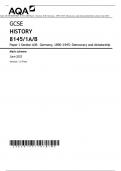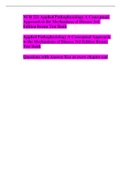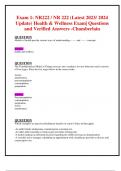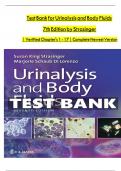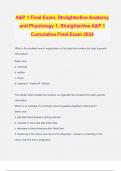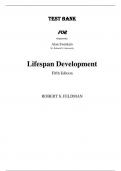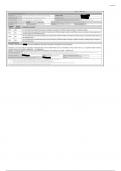Exam (elaborations)
IRM1501 Introduction to research for law and criminal justice October/November 2022 PORTFOLIO - EXAMINATION
- Institution
- University Of South Africa (Unisa)
This document contains the Solutions to the IRM1501Portfolio – Examination (Referenced with Footnotes and Bibliography according to the School of Law Referencing Style Guide LLBALLF Tutorial Letter 302/4/2022). Best of luck with your Exam. Camecia Cass
[Show more]




